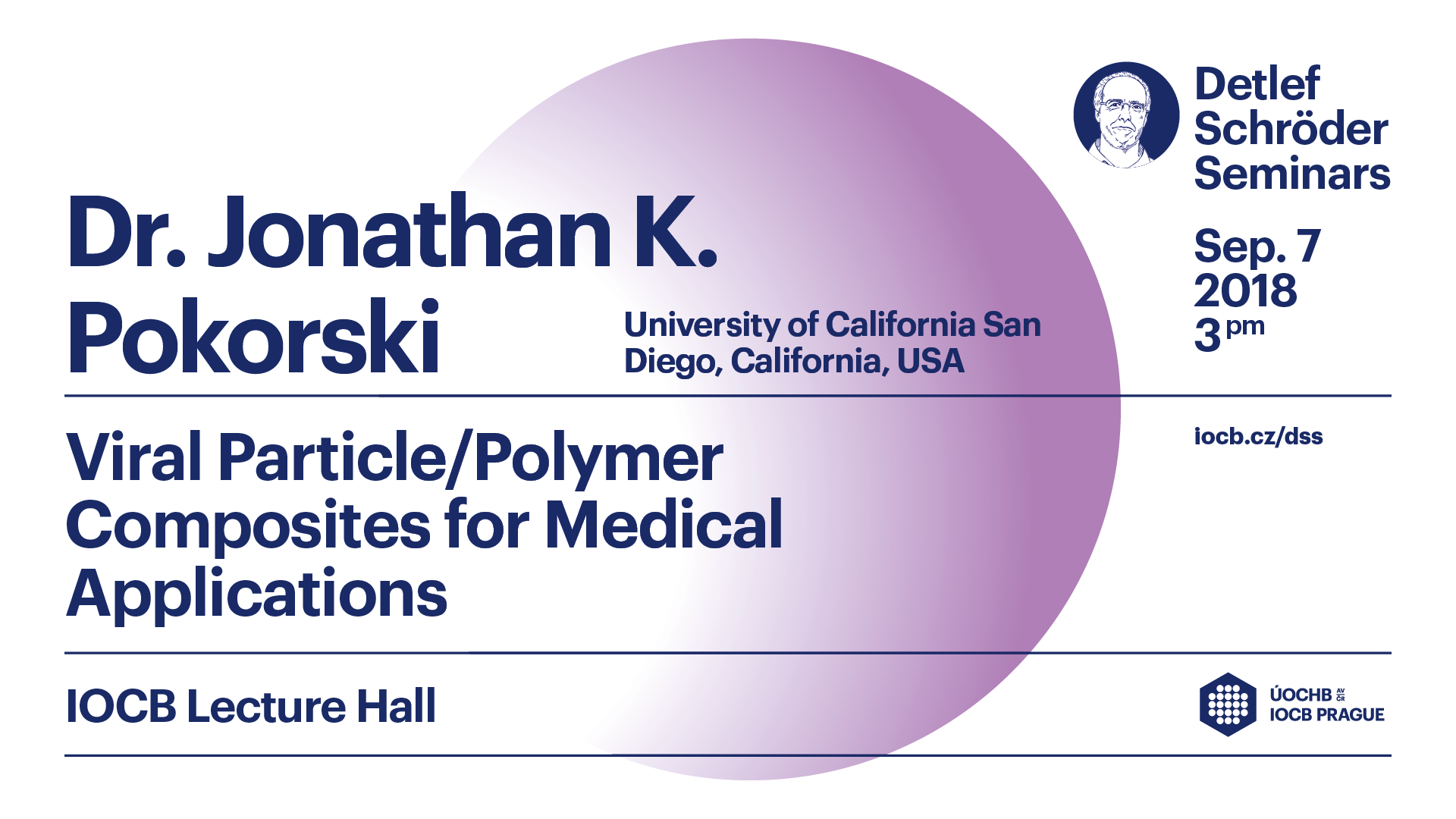
Speaker
Dr. Jonathan K. Pokorski (University of California San Diego, CA, USA)
Topic
Viral Particle/Polymer Composites for Medical Applications
Series
Date and time
7 September 2018, 3 p.m.
Place
IOCB Prague, Lecture Hall (Building A, 2nd floor, A2.01)
Abstract
Biopharmaceuticals are the main growth area in pharmaceutical research and development and, most often, proteins are the active pharmaceutical ingredient. Recombinant protein production can be inexpensively scaled to multi-kilogram scales since the molecular biotechnology field is rapidly improving. Of particular interest are viral nanoparticles. The self-assembled, protein-derived nanostructures show exceptional promise in both vaccine development and tissue-specific delivery of cargo. One technological hurdle, however, is the formulation of functional proteins either as injectables or into therapeutic reservoirs, also known as depots.
This talk will detail two central areas in developing viral nanoparticles for administration: 1) chemical modification to lessen carrier-specific immune responses and 2) melt-processing of viruses into depot devices and the effect on macromolecular structure of the processed proteins. The first portion of the talk correlates a fundamental understanding of an immune-shielding polymer conformation, when attached to viruses, and their ability to evade carrier specific immune responses. Polynorbornenes have been developed as an alternative to linear PEG and were found to exhibit unique conformations, that better shielded the protein from antibody recognition. The second portion of the talk will describe melt processing of viral particles into slow release implants. Melt processing is exceptionally scalable, with commercial extruders reaching throughputs of 1000 kg/h and 100% of the active protein is encapsulated. Melt processing is thought to be possible because of the reduced hydration state in the melt, thus eliminating the driving force to form amorphous protein aggregates. The primary focus of this portion of the talk will be a discussion of virus-like nanoparticles (VLPs) derived from bacteriophage Qß. Qß is a combinatorial vaccine platform that has seen success in vaccine development for influenza, HIV, and hypertension. Melt processing conditions, physical models of processing, and biological data will be described in which Qß is processed into slow-release depot delivery formulations.



